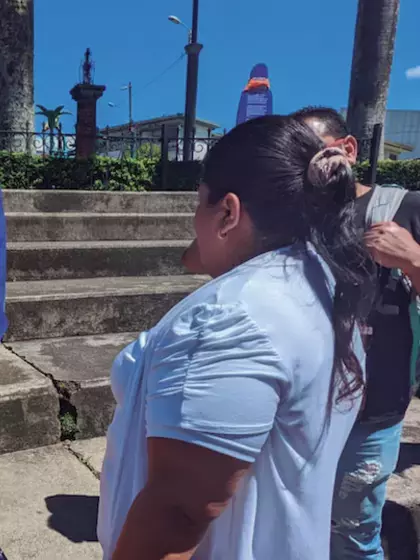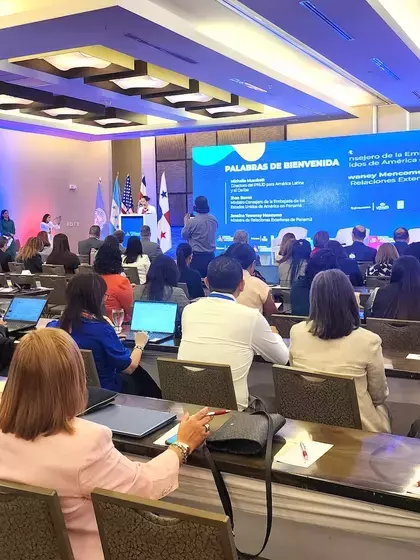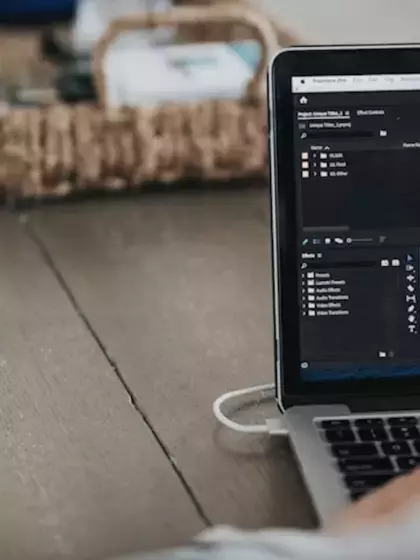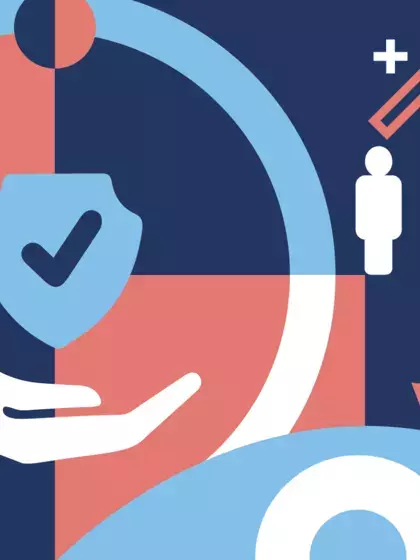“The InfoSegura Project is one of the best things that has happened to this region,” Laura Chinchilla
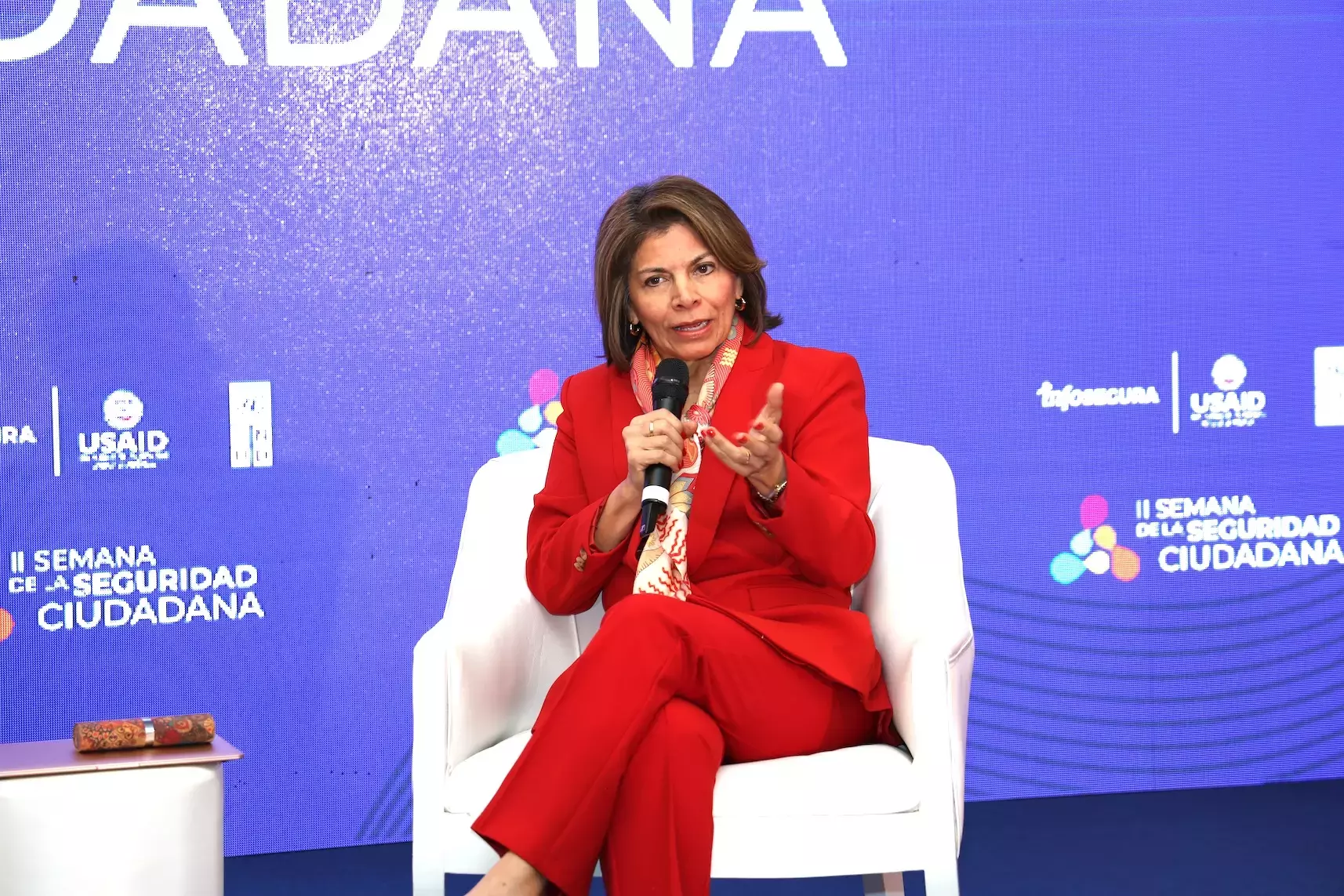
Since it started in 2014, the InfoSegura Project has been growing, generating synergies, compiling and presenting data, influencing policymaking and training governmental officials, and more. Step by step, it went from playing a secondary role to being one of the leaders on the citizen security scene in Central America and the Dominican Republic.
Its role has grown over the years, working to strengthen citizen security to end organized crime and gender-based violence. Its work and impact are supported by the data. Yet, there is something less tangible in terms of citizen security, something you only achieve by working side by side with countries and decision-makers. InfoSegura has engendered a cultural shift in the understanding of the critical importance of possessing high-quality data for citizen security. Presently, most laws, policies or regulatory changes are supported by figures.
In this article, we bring together the considered views of relevant stakeholders on the significance and relevance of the work that InfoSegura Project has achieved during this decade. Heads of state and governmental officials, citizen security experts, academicians and representatives of civil society, all emphasize the positive impact the InfoSegura Project has had on the security and wellbeing of the region. Many believe that its emergence marked a turning point in the fight against crime and the promotion of safe environments.
Michelle Muschett, Director, UNDP Latin America and the Caribbean
“For the UNDP, citizen security is linked to the workings of democracy, progress in development and equity...,” Ms Muschet says. In this sense, she considers that, “InfoSegura is an essential part of UNDP efforts to build institutional capacities and to address the growing challenges of citizen security and move towards societies that are safer, more democratic, better governed and more inclusive.”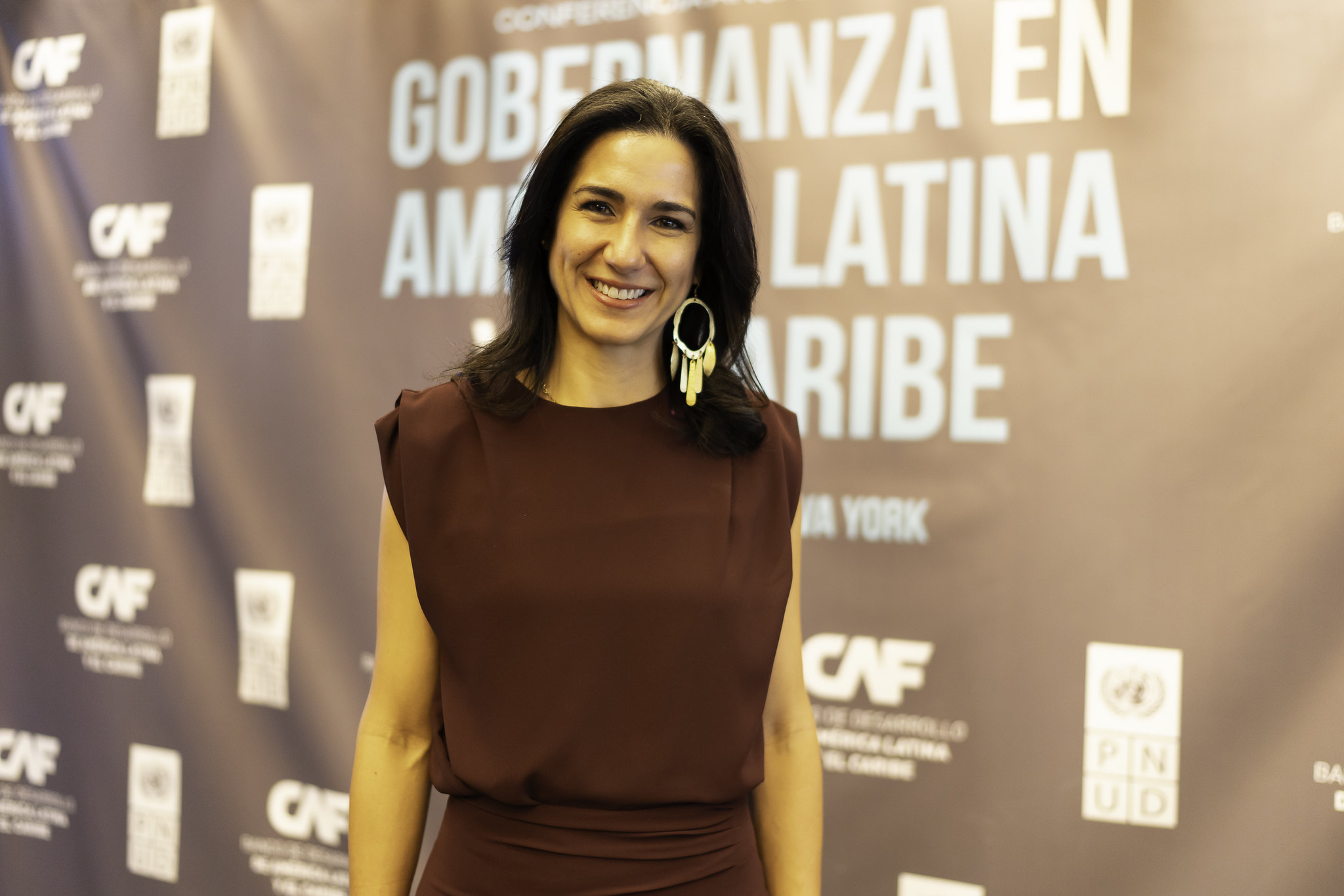
Michelle Muschett, Director, UNDP Latin America and the Caribbean.
Peter Natiello, Senior Deputy Assistant Administrator for the USAID Bureau for Latin America and the Caribbean
“We work in close collaboration with the UNDP on a programme called InfoSegura, and it is a really important tool to help certain governments compile data on crime and violence,” Natiello explains, and adds, “governments and civil society in those countries are using this data to inform public policy.”
Christopher Cushing, Mission Director, USAID in Central America and Mexico
The representative of the United States Agency for International Development in the region says they “are very satisfied with this collaboration,” referring to the work done for the last 10 years. “We have worked shoulder to shoulder with the UNDP,” Cushing says, noting that an added value InfoSegura brings to the table are its offices in the different countries, which, in his view, “amplifies the effects of the Project.” He concludes, “we have seen it mature in terms of the use of data, evidence and its impact on public policy.”
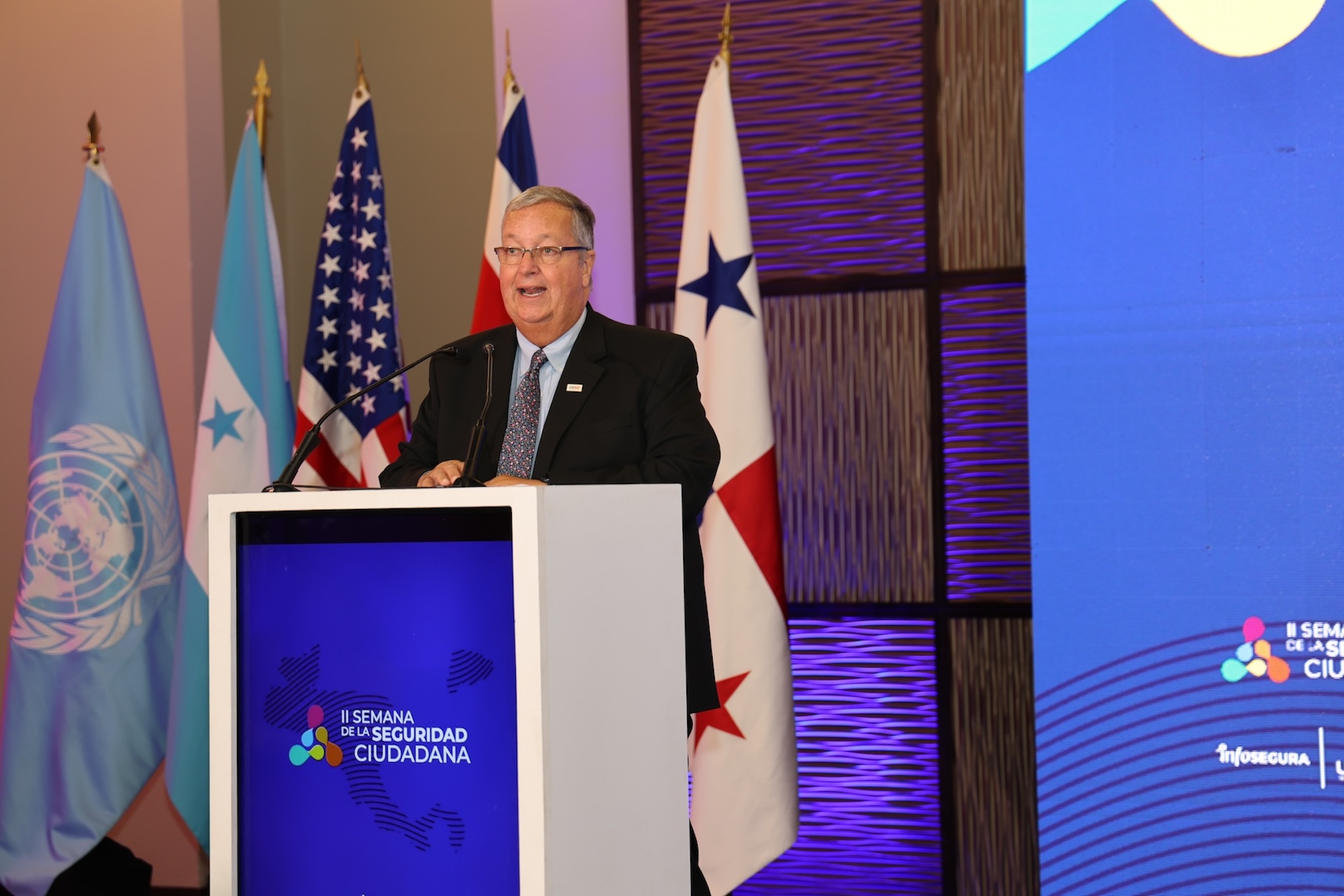
Christopher Cushing, Mission Director, USAID in Central America and Mexico.
Laura Chinchilla, former President of Costa Rica
After over thirty years of experience working in various positions in citizen security and democratic governance in Central America and the Caribbean, the former Head of State of Costa Rica emphasizes that “InfoSegura is one of the best things that has happened to this region.” Chinchilla, who has collaborated actively with the Project this whole time, recognizes that the Central American countries have suffered the worst criminal violence scenarios for a number of years, “but over the last ten years they have also made significant progress.” Her view is that, “this has not been by chance, rather it is the result of the contributions InfoSegura has made, promoting and getting authorities to adopt a comprehensive approach for dealing with the problem.”
“At a time when reductionist, reactive and punitive approaches are resurfacing as a threat in some countries, the InfoSegura Project becomes even more indispensable. I trust that we will have InfoSegura for many more years in Central America and in several other countries in the region,” stated the former president.
Oscar Naranjo, former Vice President of Colombia and former Director of the National Police
This is one of the most respected public figures throughout the region in matters of citizen security and one of the headliners at Second Security Week in late January 2024 in Panama, organized by InfoSegura with the support of UNDP y USAID. General Naranjo (retired) notes that the project led by Marcela Smutt “has been consolidating itself over the last decade as a technical, political meeting space, specializing in security, peaceful coexistence and justice for countries de the region.”
“InfoSegura can be credited with having put together a team of experts who lend great soundness to its proposals so that, country by country, governments have the option of implementing or strengthening security models that transform the reality of crime in the region and strengthen democracy,” says the former high official of Colombia. “InfoSegura is a formidable instrument to contribute to the strengthening of institutions in Central America and the Dominican Republic in particular and, in general, in all of Latin America”.
Jesús María Féliz, Vice Minister of Interior Security of the Dominican Republic
“InfoSegura affords the opportunity of having an overview of the state of security in Central America and other countries in the region that is based on data and information collected with scientific and methodological rigour, where the evidence collected helps determine the policy that will be designed and implemented,” states the Dominican Vice Minister.
Féliz believes that InfoSegura “has been very useful” for his country, and lists initiatives carried out by the Project with his country's government, such as the Citizen Security Observatory, the training and updating processes for personnel related to citizen security, the holding of different events, or the guidance, awareness and education campaigns aimed at raising awareness of the disquieting levels of violence against women.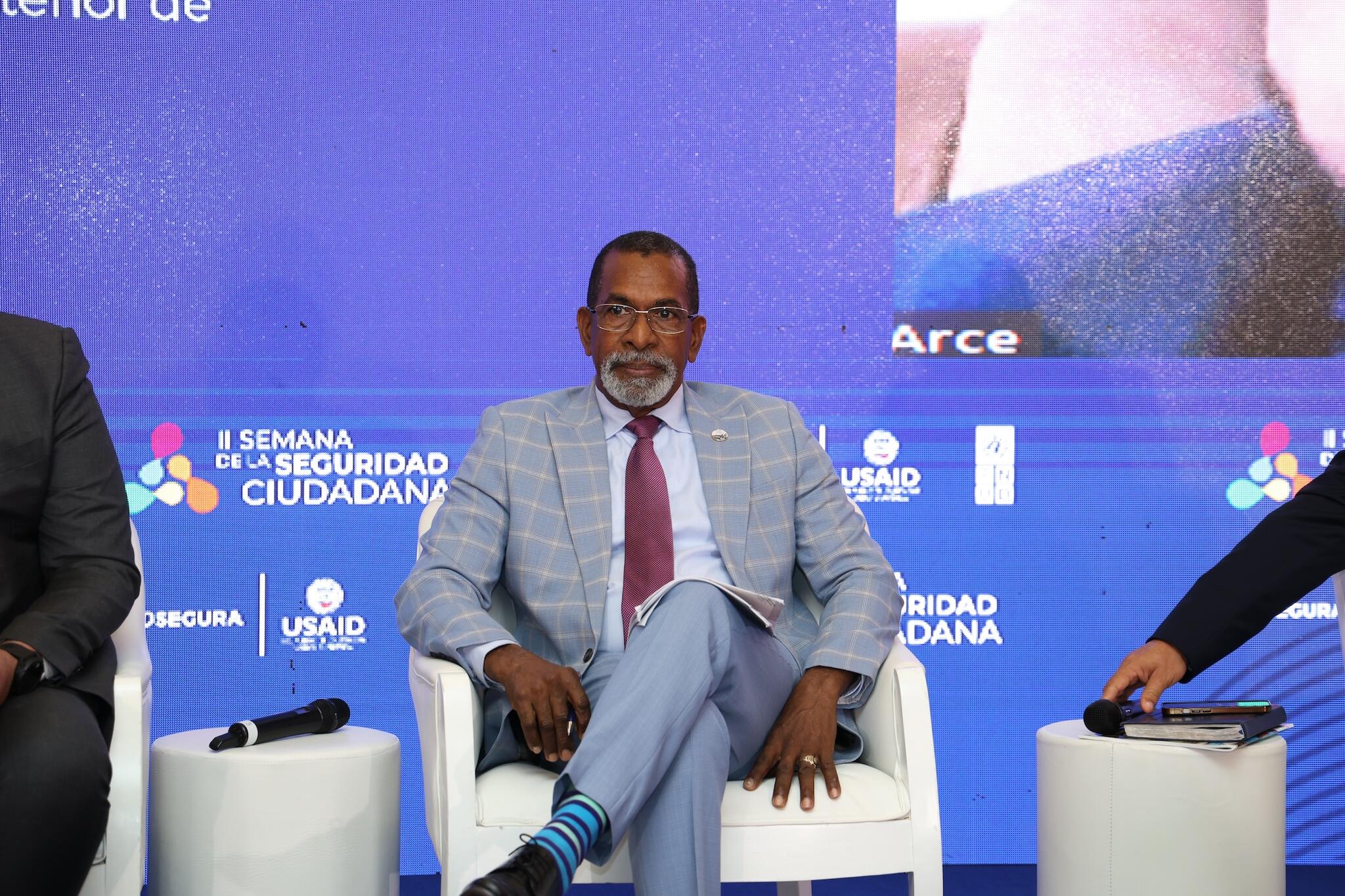
Jesús María Féliz Jiménez Vice Minister of Interior Security of the Dominican Republic
Kareem Musa, Minister of Home Affairs and New Growth Industries of Belize
“Before InfoSegura, there was a remarkable absence of complete and transparent data on crime at the national and regional levels. This constituted a barrier not only to making policy, but also to the ability of citizens, the media and international organizations to access timely and relevant information,” explained Kareem Musa, Belizan Minister of Home Affairs. In his view, the Project, “changed this landscape by reinforcing national partner capacities in data gathering and processing, establishing national information management platforms in real time, and promoting a clear strategy for long-term objectives on achieving interoperability.”
“As a result,” he continues, “decision-makers now have access to up-to-date, high-quality data and this along with the emphasis the Project places on innovation, contributes to better national policies and outcomes in terms of public safety across the region.”
Jessice Faieta, former UNDP Regional Director for Latin America and the Caribbean
Ms Faieta, now a professor at Yale University, knows InfoSegura's work very well from her days as UNDP regional direct. “For over ten years, InfoSegura has been able to accumulate valuable data, information and knowledge on the state of security in Central America and the Dominican Republic, which has helped inform and improve policies for prevention and response, as well as strengthened the national institutions that have been its partners.”
Ms Faieta believes that this cumulative knowledge, “needs to be extended to other Latin American countries that could benefit from the lessons learned.”
Carlos Ramos, Coordinator, CONOSE Network
Over this period, Mr Ramos has worked closely with InfoSegura. In his view, “InfoSegura has been one of the most substantive contributions in the region, building institutional capacities, promoting inter-organizational dialogue and strengthening state institutions with technical and operational capacities, respectful of legality and committed to the construction of inclusive and democratic societies.” Ramos sees the InfoSegura Project as “an innovative regional experience of inter-institutional coordination and learning that has led to systematic progress in strengthening institutional and professional capacities to address complex security problems, based on the collection and use of robust information and evidence.”
Alejandro Gimenez Santana, Co-Executive Director, Newark Public Safety Collaborative
“The InfoSegura Project is a hub for empirical evidence in matters of public security, in order for national governments to produce knowledge, collaborate and improve democratic crime-reduction processes,” says Dr Gimenez, who participated actively in the Second Security Week in Panama. In his opinion, “the InfoSegura Project enabled these processes to continue evolving while respecting human rights and protecting minorities. It uses data and analyses those factors that create opportunities for criminals in the region.” Dr Gimenez is “convinced of the importance this Project has in continuing to build bridges for collaboration between governments and civil society in order to enhance public safety processes and for the protection of human rights.”
Ignacio Cano, National Autonomous University of Mexico
Ignacio Cano, from Mexico, confirms there are two ways in which the role that InfoSegura has played in the region over the last ten years has been outstanding. “In the doctrinal and proactive sense, it has been a consistent voice calling for evidence-based security policies in a region that has been marked by improvised policies inherited from decades of violent socio-political conflicts; calling for transparency, disclosure and circulation of security information in a context marked by secrecy and reserve; and for a vision that emphasizes the prevention of violence, in line with the concept of citizen security, in circumstances dominated by short-term repressive measures.” Furthermore, “from a practical point of view, InfoSegura has been a relevant actor in that it has provided technical support for processes to improve the production and analysis of information on security in the region with a variety of criminal justice institutions,” he stated.
Julieta Castellanos, former Rector, National Autonomous University of Honduras
Castellanos values the regional space that InfoSegura created for building theoretical and methodological capacities for studying, understanding, comprehending, building and disseminating information and knowledge. “This information is produced rigorously and it is an indispensable tool for policymaking with a comprehensive perspective.” Professor Castellanos sees regional gatherings that bring together government, academia and civil society, “have been an important achievement,” because, up to now, certain institutions, “had been reticent about having other sectors discuss citizen security, because they considered insecurity to be strictly police business. Penetrating this space that used to be the purview of only the police, has been one of the valuable achievements of the InfoSegura Project.”
Anabella Amado, Academic Secretary of the Faculty of Political and Social Sciences at Rafael Landívar University, Guatemala.
For this scholar, InfoSegura “promoted research from different points of view and published and disseminated research papers and supported young researchers who are interested in these issues.” Ms Amado emphasizes that, “their contributions generate reliable data, which is undoubtedly an indispensable resource, and is not always available to political stakeholders for use in understanding, researching and decision-making.”
She also stresses that they have “rightly promoted regional meetings that have become spaces for disseminating research, exchanging knowledge and experiences and promoting dialogue.”
Ilka Treminio, Director, FLACSO, Costa Rica
The Central American region “has been limited in the amount and quality of data in matters of citizen security and violence,” for years, according to Ms Treminio. The Director of FLACSO considers InfoSegura, “has been the most relevant regional project in filling these gaps.” In her opinion, project results have materialized in reliable reports, open data portals, training processes and discussions between civil society organizations, academia and public policy-makers. “This has made InfoSegura a regional point of reference in this matter.” In other words, you cannot talk about security data without talking about InfoSegura,” she states.
Lucía Dammert, Citizen Security Specialist
Ms Dammert has been familiar with the Project since its inception, “the Project consolidated teams of serious and high-quality professionals who made significant contributions to knowledge and policymaking for citizen security,” working in Central America, which is one of the most challenging settings in the world.
“I am certain that the work undertaken by the Project, but above all the capacity of its multiple regional and local leaders, will continue to generate important changes in countries that continue to face deep challenges,” explains the subject-matter expert.
Hugo Suazo, Subsecretary for Security in Prevention and Human Rights
“The InfoSegura Project has been a fundamental pillar for the region over the last decade, significantly strengthening information on security in Central America and the Dominican Republic.” Suazo describes it as, “the extraordinary work the Project has done has been felt at multiple levels, from building technical capacities through formulating evidence-based policies.”
Suazo considers that the InfoSegura Project, “has been a catalyst for digital information safety, leading to a positive impact that transcends borders and it made an invaluable contribution in generating a collective awareness of the importance of using information in decision-making processes.” “No doubt,” he closes his remarks, “its impact will last throughout the region, beyond the ten years of implementation, laying the groundwork for a safer and more resilient future in terms of security.”
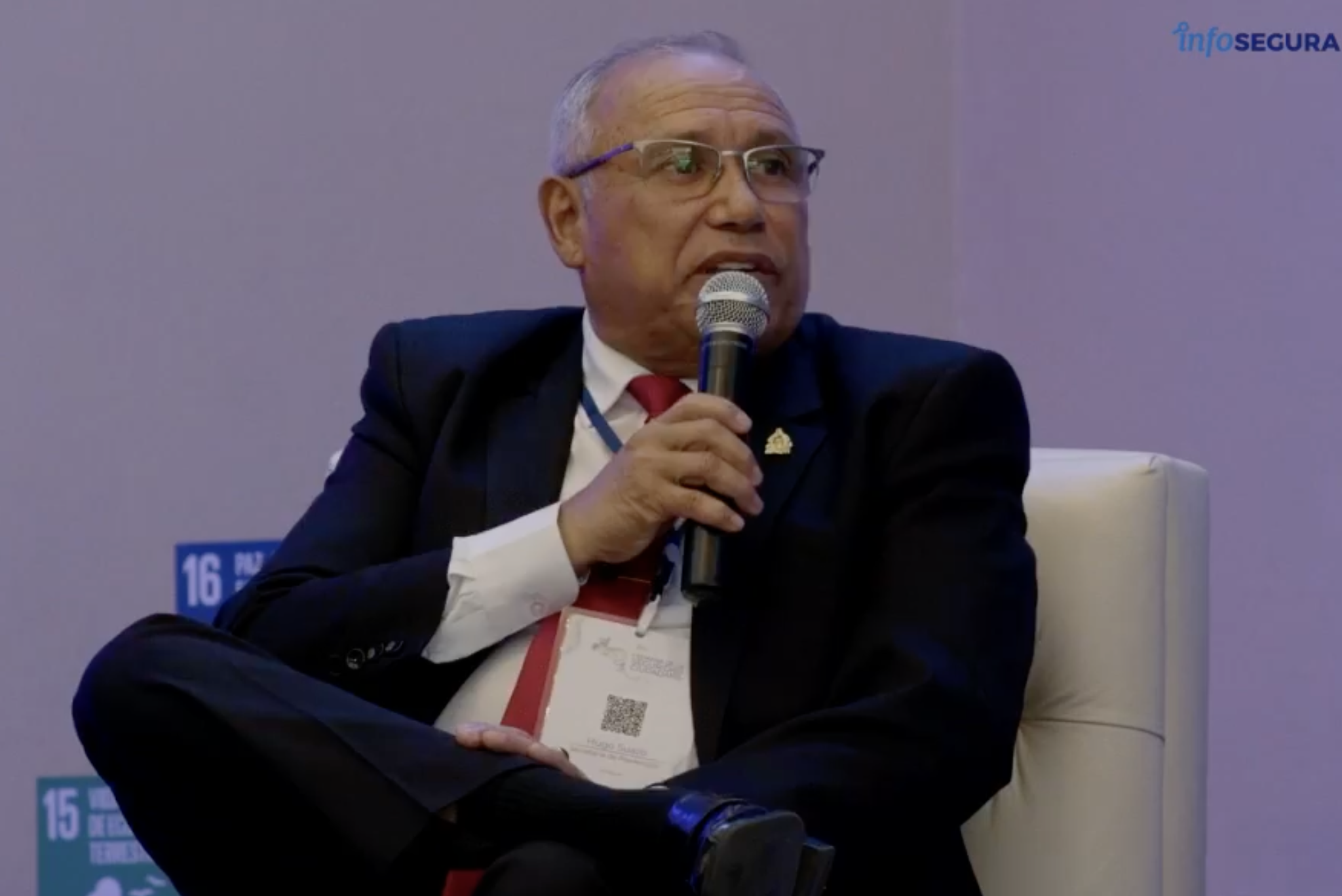
Hugo Suazo, Subsecretary for Security in Prevention and Human Rights.


